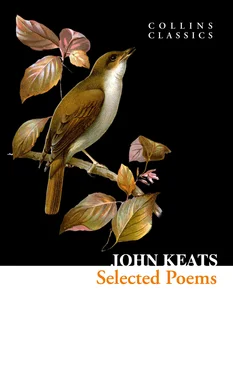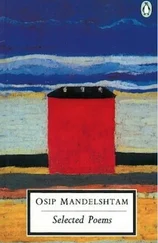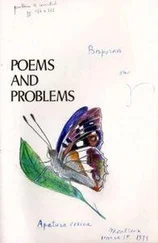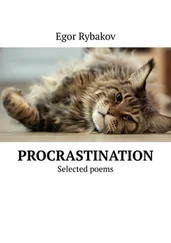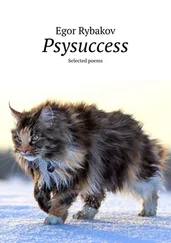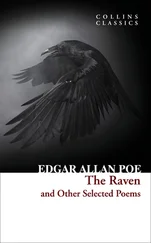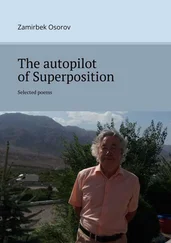The last lines of “Ode on a Grecian Urn” are among Keats’ most famous: “‘Beauty is truth, truth beauty,’ – that is all / Ye know on earth, and all ye need to know.” It is an idea very much in keeping with Keats’ philosophy on both life and the purpose of poetry, with his sharp eye for detail and his yearning to express wonder in words. He had said as much in a November 1817 letter to his friend Benjamin Bailey, writing of “the truth of the imagination” and concluding that “whatever the imagination seizes as beauty must be truth.”
Keats’ letters are an invaluable asset in understanding the inspiration behind his writing. He took his time over his correspondence, and repeatedly ideas played with in letters appear in subsequent poems. In a letter to the poet John Hamilton Reynolds in September 1819, for example, Keats wrote of the beauty of autumn – “somehow the stubble plain looks warm” – lines which, in more polished form, found their way into “On Autumn”. In May 1818 Keats had, in another letter to Reynolds, toyed with the idea of life as a “Mansion of Many Apartments”, a notion that returned the following year in “The Fall of Hyperion: A Dream”. More than any other subject, Keats wrote about poetry itself, and though his letters, like his poems, did not achieve fame until after his death, they finally found their audience in the great poets of the twentieth century. T. S. Eliot considered them “the most notable and important ever written by any English poet”, their statements on poetry ringing true even “for greater and more mature poetry than anything Keats ever wrote”.
The two subjects that intrigued Keats most clashed repeatedly in the last years of his life. Towards the end of 1818, around the time he moved to Wentworth Place, Keats lost his beloved younger brother Tom to tuberculosis but also met the love of his life, Fanny Brawne. She helped him in his grief during the months in which he composed his odes, and Keats had her in mind when he wrote “Bright star, would I were as steadfast as thou”. In October 1819 he wrote to her: “I have been astonished that Men could die Martyrs for religion – I have shudder’d at it – I shudder no more – I could be martyr’d for my Religion – Love is my religion – I could die for that – I could die for you.” That same month, Fanny accepted his proposal of marriage, although her mother refused to give her consent until the failed poet had proved his financial worth.
But Keats himself had by now begun to show symptoms of tuberculosis, the disease that had killed his mother and two brothers. His condition worsened during 1820 until finally, in September, he departed for the warmer climate of Rome on doctors’ orders. Knowing that he would never return, he never wrote to Fanny again.
Following a storm-wracked voyage, Keats reached Rome in mid-November, two months after he had left London. The weather had turned wintry and he took to his bed. He wrote his last letter on 30 November, telling his friend Charles Armitage Brown: “I am leading a posthumous existence.”
Keats died in Rome on 23 February 1821. Convinced that he had left no lasting impression on the world of literature – a year earlier he had written to Fanny: “I have left nothing to make my friends proud of my memory” – he asked his doctor to arrange a plain, nameless and dateless gravestone simply saying: “Here lies One whose Name was writ in Water”. His doctor ignored this wish, and the simple tombstone that lies to this day in the Protestant Cemetery in Rome bears the following, more elaborate inscription: “This Grave / contains all that was Mortal / of a / YOUNG ENGLISH POET / Who / on his Death Bed, in the Bitterness of his Heart / at the Malicious Power of his Enemies / Desired / these Words to be / engraven on his Tomb Stone: / Here lies One / Whose Name was writ in Water.”
It was not until 1848, thirty years after their composition, that some of Keats’ own poignant thoughts on leaving the world behind were published: “When I have fears that I may cease to be / Before my pen has glean’d my teeming brain, / … And when I feel, fair creature of an hour! / That I shall never look upon thee more, / Never have relish in the faery power / Of unreflecting love! – then on the shore / Of the wide world I stand alone, and think / Till Love and Fame to nothingness do sink.”
CONTENTS
Cover
Title Page
Copyright
History of Collins
Life & Times
Poems
Addressed to Haydon
I stood tip-toe upon a little hill
Imitation of Spenser
Three Sonnets to Woman
Isabella; or, The Pot Of Basil. A Story from Boccaccio
La Belle Dame Sans Merci
Lamia
Part I
Part II
O Solitude! if I must with thee dwell
Ode on a Grecian Urn
Ode on Melancholy
Ode to a Nightingale
Fancy
Ode to Psyche
On first looking into Chapman’s Homer
To Autumn
Sleep and Poetry
Specimen of an Induction to a Poem
The Eve of St. Agnes
To Charles Cowden Clarke
To Kosciusko
Hyperion: A Fragment
Book I
Book II
Book III
Endymion: A Poetic Romance
Book I
Book II
Book III
Book IV
Letters
CLASSIC LITERATURE: WORDS AND PHRASES adapted from the Collins English Dictionary
About the Publisher
Poems
Highmindedness, a jealousy for good,
A loving-kindness for the great man’s fame,
Dwells here and there with people of no name,
In noisome alley, and in pathless wood:
And where we think the truth least understood,
Oft may be found a “singleness of aim,”
That ought to frighten into hooded shame
A money mong’ring, pitiable brood.
How glorious this affection for the cause
Of stedfast genius, toiling gallantly!
What when a stout unbending champion awes
Envy, and Malice to their native sty?
Unnumber’d souls breathe out a still applause,
Proud to behold him in his country’s eye.
I stood tip-toe upon a little hill
I stood tip-toe upon a little hill,
The air was cooling, and so very still.
That the sweet buds which with a modest pride
Pull droopingly, in slanting curve aside,
Their scantly leaved, and finely tapering stems,
Had not yet lost those starry diadems
Caught from the early sobbing of the morn.
The clouds were pure and white as flocks new shorn,
And fresh from the clear brook; sweetly they slept
On the blue fields of heaven, and then there crept
A little noiseless noise among the leaves,
Born of the very sigh that silence heaves:
For not the faintest motion could be seen
Of all the shades that slanted o’er the green.
There was wide wand’ring for the greediest eye,
To peer about upon variety;
Far round the horizon’s crystal air to skim,
And trace the dwindled edgings of its brim;
To picture out the quaint, and curious bending
Of a fresh woodland alley, never ending;
Or by the bowery clefts, and leafy shelves,
Guess were the jaunty streams refresh themselves.
I gazed awhile, and felt as light, and free
As though the fanning wings of Mercury
Had played upon my heels: I was light-hearted,
And many pleasures to my vision started;
So I straightway began to pluck a posey
Of luxuries bright, milky, soft and rosy.
A bush of May flowers with the bees about them;
Ah, sure no tasteful nook would be without them;
And let a lush laburnum oversweep them,
And let long grass grow round the roots to keep them
Читать дальше
